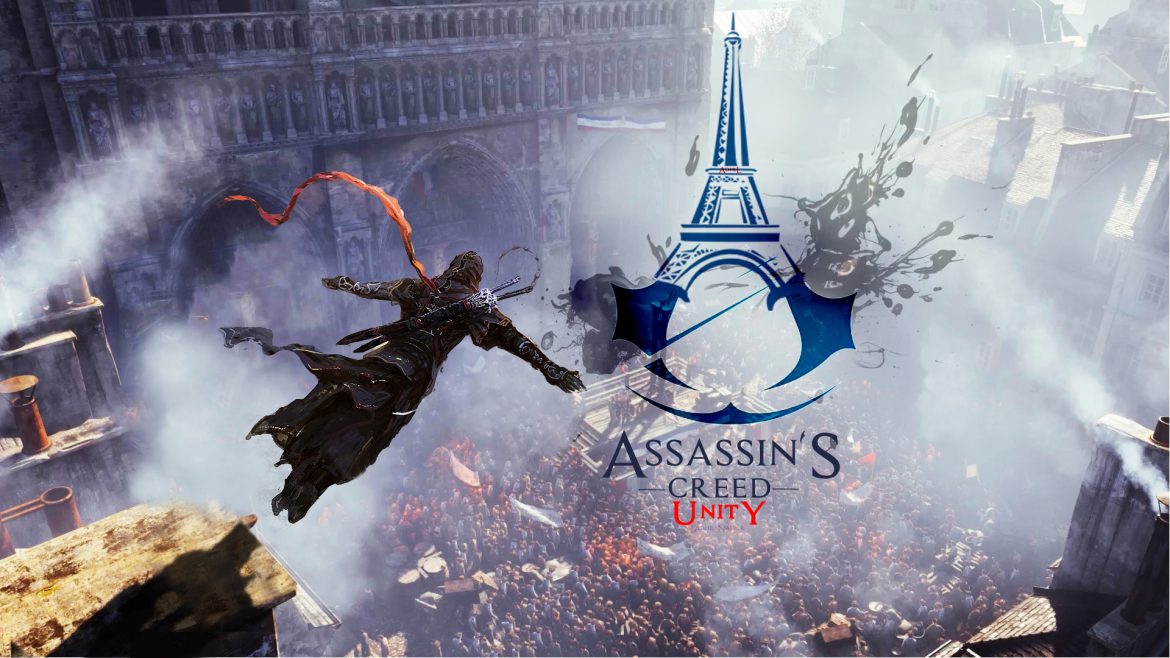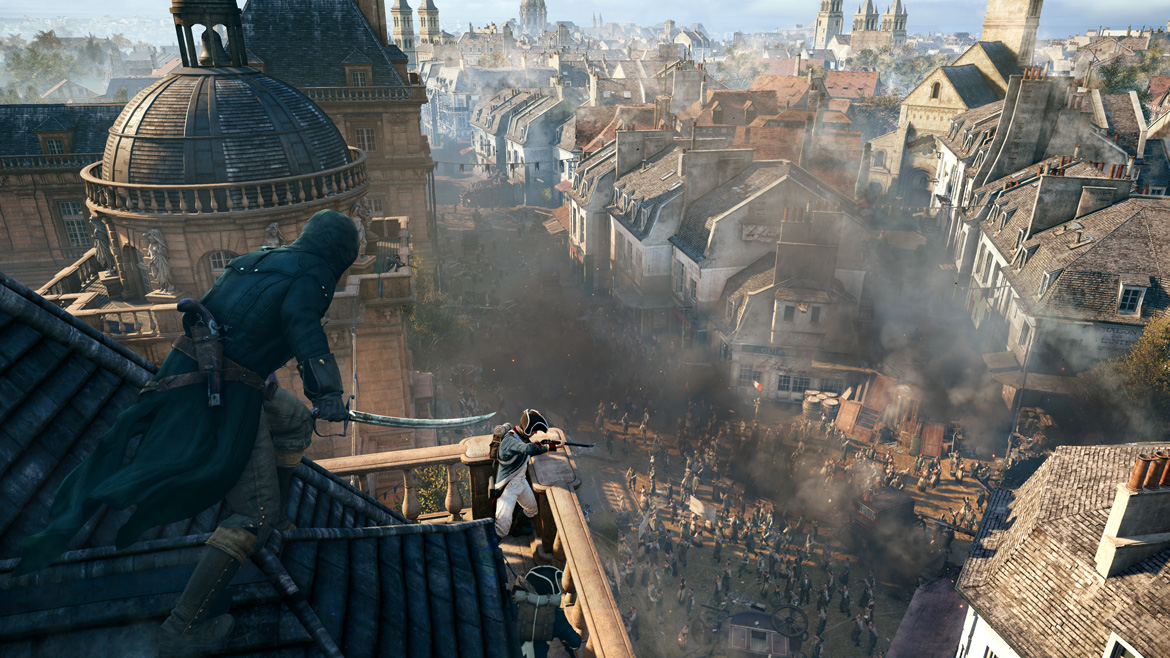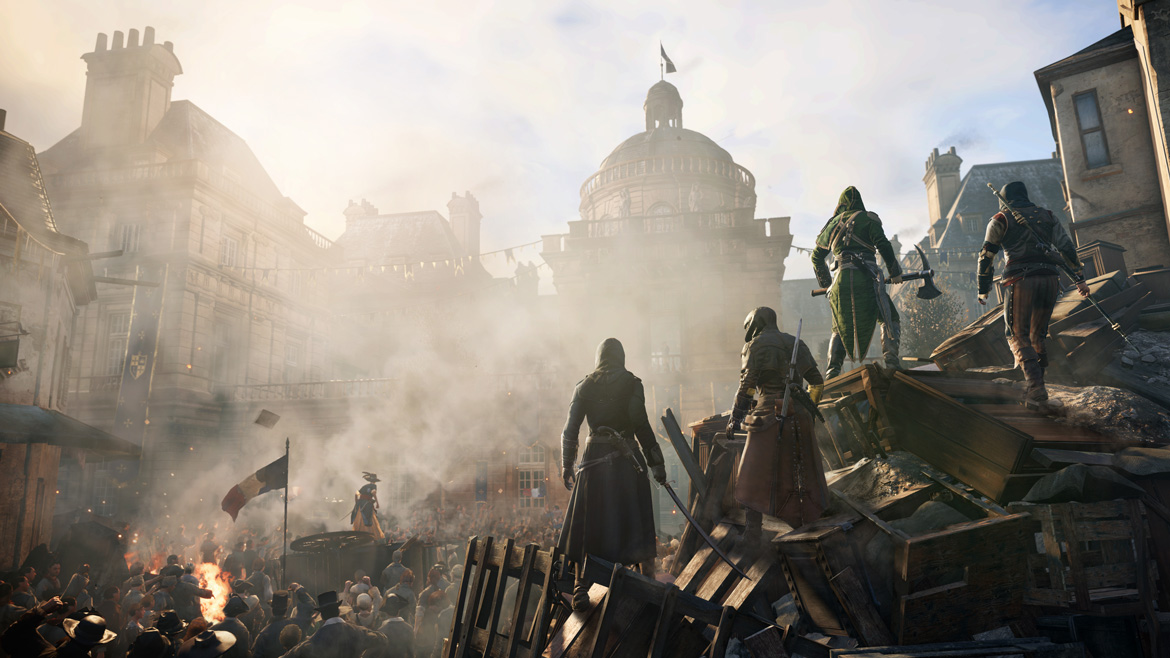TL;DR
Assassin's Creed Unity finally makes the leap to next-gen with a stunningly detailed and massive recreation of revolutionary Paris. While the familiar Assassin's Creed loop of open-world exploration and assassination missions is present, the game truly shines with its incredible visual fidelity and ambitious scope. New features like co-op missions add fresh gameplay, though the introduction of microtransactions is a disappointing drawback. Despite some initial bugs, the game offers a visually impressive and content-rich experience. Dive into a breathtaking French Revolution – discover if Unity lives up to its potential in our full review!
Assassin’s Creed Unity makes its debut on next-generation platforms, and the result is impressive.
The Assassin’s Creed franchise possesses a captivating and widespread appeal, evidenced by its substantial sales figures and numerous sequels. Since the initial release – arguably the most impactful – of Assassin’s Creed, which introduced the conflict between the Hashashins and Templars and the immersive freedom of movement within historical settings such as Jerusalem, Damascus, and later Venice in the second installment, the open-world gameplay and its missions have continued to fascinate players.
While many missions share similarities (often involving assassinations, executed with varying degrees of subtlety), the allure lies in the exciting freedom of approach. Assassin’s Creed Unity represents a significant milestone in the series, marking its full transition to next-generation consoles and contemporary PC hardware. Set against the backdrop of the French Revolution, players assume the role of Arno Dorian, a young man whose father’s murder leads him to be adopted by a Templar. As the narrative unfolds, Arno’s ties to the Assassins become apparent, leading him from the Bastille prison to the opulent salons of Paris, encountering historical figures such as Napoleon, Marie Antoinette, and Jean Bernadotte, the future Swedish king.
The immediately striking aspect of AC Unity is its visual fidelity. Paris feels remarkably alive, teeming with inhabitants, chaotic riots, bustling establishments, and magnificent architecture, often accessible for exploration (the first visit to Notre Dame is particularly memorable). The scope and ambition of AC Unity are undeniably impressive. The game features vast city districts to explore, numerous points of interest, and a wealth of main and side missions that provide approximately 12-20 hours of gameplay. Focusing on the graphics, UBISoft has delivered exceptional results, opting to release the game exclusively for Xbox One, PS4 (the version tested), and PC. Our exploration of virtually every church in Paris – a city we are familiar with and which has been faithfully recreated (with the understanding that some buildings have evolved since the 18th century) – never ceased to impress us with the realistic rendering of the skyline, the intricate details, and the dynamic interplay of sunlight and weather effects. AC Unity is undoubtedly among the most visually compelling games currently available and an ideal demonstration of the capabilities of current-generation hardware compared to the PS3 and Xbox 360.
The audio design is equally meticulous, reflecting a deep appreciation for the era and its distinctive elements. Characters sing revolutionary anthems like the Marseillaise, and the dialogue alternates between French and Cockney English for broader accessibility. The voice acting is generally commendable, and the musical score effectively establishes the appropriate atmosphere. Enhancing the experience with a home theater system is recommended, as the game provides a rich and immersive soundscape. The only minor issue is the occasional low volume of the dialogue, which can make it challenging to understand. However, this is infrequent and represents the only notable shortcoming.
AC Unity has faced criticism regarding its monetization system. The game includes microtransactions, a regrettable addition, alongside cumbersome companion apps that offer limited functionality beyond unlocking chests. These systems allow players to purchase upgrades and bonuses, such as new missions, outfits, and weapons, with real currency. The inclusion of such features in a full-priced, next-generation title is questionable. While free-to-play games require funding and can implement monetization effectively (as seen in Warframe, for instance), the practice of selling full-priced games (typically around 599 SEK) with season passes priced at 909 SEK (as exemplified by Call of Duty: AW on the PSN Store) is excessive. While game development is undeniably expensive, often surpassing film production costs, a price point of 599 SEK should represent a reasonable threshold. If financial constraints necessitate it, developers should consider scaling back their ambitions and producing a slightly less extensive, or perhaps shorter, game. In today’s crowded market, this could actually be an advantage, as many games are often excessively lengthy and drawn out. Fortunately, AC Unity does not require players to purchase additional content to complete the main storyline. Furthermore, engaging in side missions – which are generally enjoyable – allows for character progression at a pace sufficient for the main narrative, albeit slightly slower. This compromise is acceptable.
The missions and overall variety within AC Unity are otherwise substantial. While “kill-person-x” assignments are present, the game introduces new elements, such as assisting the legendary investigator Vidocq in solving murders, and a new co-op mode that allows players to team up with friends or other online players (up to four participants) to tackle challenging missions. This mode incorporates distinct playstyles, allowing players to specialize as melee attackers, healers, stealth experts, or long-range specialists utilizing pistols and rifles. This feature is well-implemented and generally functions effectively in terms of connectivity and technology.
Like many contemporary AAA titles, Assassin’s Creed Unity faced a compressed development timeline, resulting in a launch accompanied by certain bugs. Subsequent patches have addressed the majority of these issues, and we did not encounter the most severe problems, such as graphical glitches with character models or system-wide crashes. It is unfortunate when development constraints prevent games from being fully polished before release, but it is also understandable that a game of this scale requires post-launch patching. In our experience at the editorial office, the bugs encountered did not significantly detract from the overall enjoyment of the game.
In conclusion, Assassin’s Creed Unity is a polished and engaging game that warrants revisiting. Paris during the French Revolution provides a compelling backdrop, and there is ample content to keep players occupied and entertained. While Unity does not represent a radical departure for the series’ core concept, it signifies a substantial advancement in the technical capabilities expected from current-generation hardware. AC Unity offers a glimpse into the future of the franchise, a future that appears promising in several respects.




